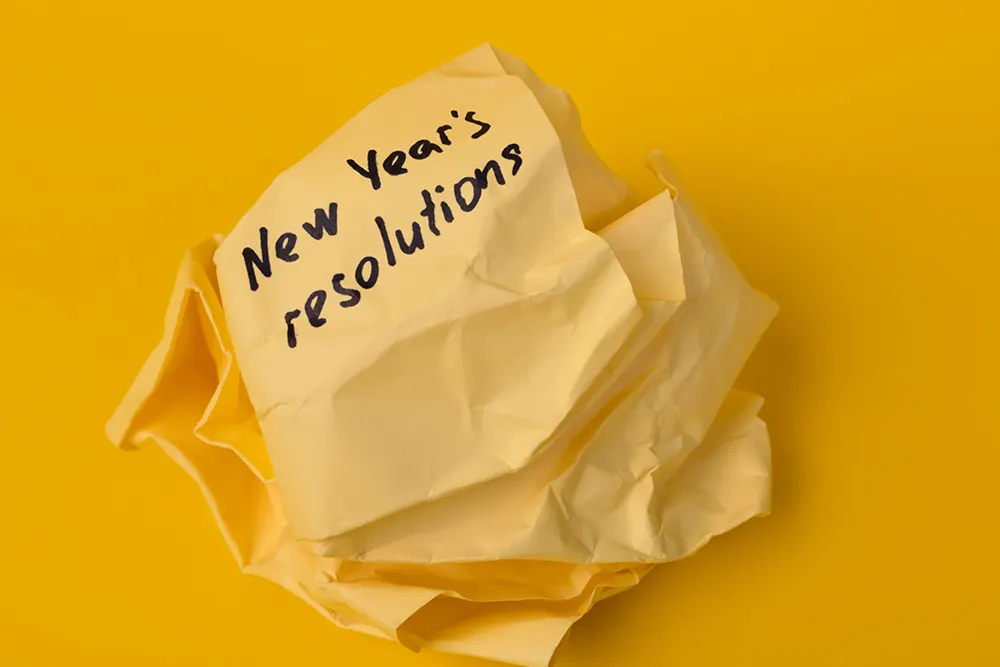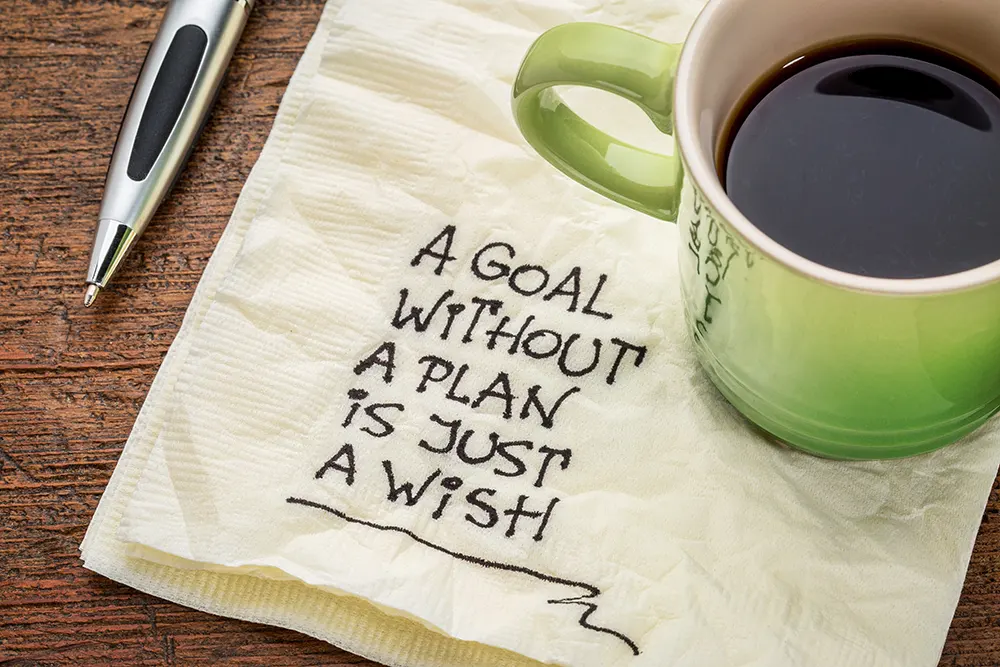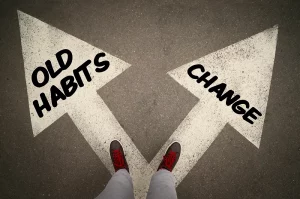Four Reasons Health and Wellness Resolutions Fail… And How You Can Change That
Famous American poet Ralph Waldo Emerson once said, “The first wealth is health,” meaning that if we want to live our lives to the fullest, we need to take care of our health. Indeed, money can open a lot of doors, but it is not easy to walk through them if our health is poor.
So, with the best of intentions to improve their health, people around the world establish their New Year’s resolutions at the beginning of each year. Many are hoping to bring about a positive change that was lacking or unfulfilled in previous revolutions around the sun.
Sadly, an estimated 80 percent of these resolutions will fail by mid-February (Inc.com, n.d.).
In this blog, we will highlight the reasons why some of these resolutions fail and offer suggestions to help you stick to your goals!
Four Reasons Our Resolutions May Fail
Although this is not a comprehensive list, below are some of the most common reasons our health and wellness resolutions can end in failure.
Reason #1: We Set Unrealistic Goals or Expectations
Desmond Tutu once made a wise assertion that the best way to eat an elephant is one bite at a time. In other words, it’s not necessarily bad to set lofty goals (like eating an elephant), but achieving these goals will require a series of smaller steps, and this is really important.
For example, if your resolution is to lose 150 pounds, before you even get started, you must set a reasonable timeframe to achieve this outcome. Trying to do too much too quickly can accelerate failure.
The Mayo Clinic and the Centers for Disease Control and Prevention (CDC) suggest targeting one to two pounds of weight loss per week. Over 52 weeks, that could amount to a weight loss of around 52 to 104 pounds in a year (Centers for Disease Control and Prevention, 2019; Mayo Clinic Staff, 2016).
So, losing 150 pounds in one year is not a realistic outcome based on the suggested weight-loss rate from the Mayo Clinic and CDC. In this case, try aiming for a smaller target, like a 50-pound weight loss in a year, and extend your larger goal across multiple years.
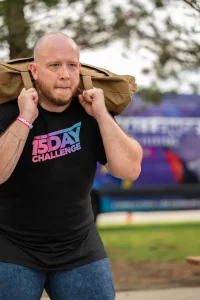
Once you have your goal set to a realistic timeline, break it into smaller pieces. Just like eating an elephant, it’s the sum of each and every bite that really counts. Those small wins can help us reach our bigger goals. In fact, small wins fuel and motivate us while we work toward our larger goals (Goleman, 2019).
According to the Mayo Clinic, our outcome goals are not even essential; it is the process goals, like walking for 30 minutes each day, that really matter (Mayo Clinic Staff, 2016).
Focus on each bite of the elephant, so to speak, and remain consistent with eating it. Eventually, it will be fully consumed. Small incremental wins lead us to our desired outcomes.
Try Setting S.M.A.R.T. Goals
Born out of the business world, S.M.A.R.T. (an acronym for (S)pecific, (M)easurable, (A)ttainable, (R)ealistic, and (T)imed) goals can help us achieve the results we want. This technique focuses on our desires and creates a measurable standard that helps us understand how we are doing (Bailey, 2019).
Are your goals for the new year S.M.A.R.T.? If not, try reworking them until they are.
Here is an example:
- I want to lose one pound a week this year. I will set aside three 10-minute sessions each day for an intense walk, and I will choose healthy foods and water over high-calorie options. I will maintain a food and activity journal to help keep myself accountable. I will weigh myself every Saturday morning to track my progress.
Remember: Goals Without A Plan Are Merely Wishes
Unfortunately, many people find that setting a goal is not enough to affect a change in behavior on its own (Bailey, 2019). Indeed, goals are a great start, but they require action. You must work toward each of your goals, or they will remain little more than wishes.
Reason #2: We Fail to Plot Our Course and Track Our Progress

A famous quote by Benjamin Franklin reads, “By failing to plan, you are planning to fail.” It takes time and intention to reach your goals.
Think of your New Year’s resolutions like a road trip. Most of us plan a
long journey in advance. We plot our course, plan our stops, and proceed to our destination methodically. Doing this helps us reach our destination more efficiently, with less uncertainty and stress. We look forward to our vacations, so why not our resolutions? If we treat them like this, we can feel good knowing we are close to the “pit stop” of a minor goal, and our major destination is that much closer.
When we fail to plan, we open ourselves up to a much harder journey. Taking the wrong exit on the freeway could send us in the wrong direction, and we may never reach our destination that way. Yes, sometimes life prevents us from taking a direct route, but that is where we need to recalculate, reorient, and keep moving in the right direction. Without a map, it can be very difficult to do this, so it’s important for us to map our progress. This helps show us how far we have come and predict how far we have yet to go.
Map Out and Track Your Progress
 A fitness wearable like the Myzone MZ-Switch may help. The MZ-Switch measures and records the effort you put into every workout and gives an accurate reading of your progress based on your fitness level. It also makes it easy to plan and complete your workouts, helping you to remain consistent while strengthening your new habits.
A fitness wearable like the Myzone MZ-Switch may help. The MZ-Switch measures and records the effort you put into every workout and gives an accurate reading of your progress based on your fitness level. It also makes it easy to plan and complete your workouts, helping you to remain consistent while strengthening your new habits.
A study published by the National Library of Medicine suggests that “the use of wearable trackers in healthy adults may be associated with modest short-term increases in physical activity” (Tang et al., 2020).
You can also use a notebook! Just keep track of where you have been and where you are headed to monitor your progress and make sure you are heading toward your goals.
Reason #3: We Just Don’t Have Time
If this reason is relevant to you, we can empathize. It seems that there are never enough hours in a day, and when we adopt new habits, it can certainly be difficult to find time in our hectic schedules.
 Try Adding Your New Resolutions to Your Calendar
Try Adding Your New Resolutions to Your Calendar
This will allow you to plan ahead and develop a consistent routine. Consistency can help you build and strengthen habits. For example, put time on your calendar to hit the gym, take a walk, and have healthy meals. Treat it like an important meeting. Try to protect your time because your health matters.
Try Shorter, More Intense Physical Activities
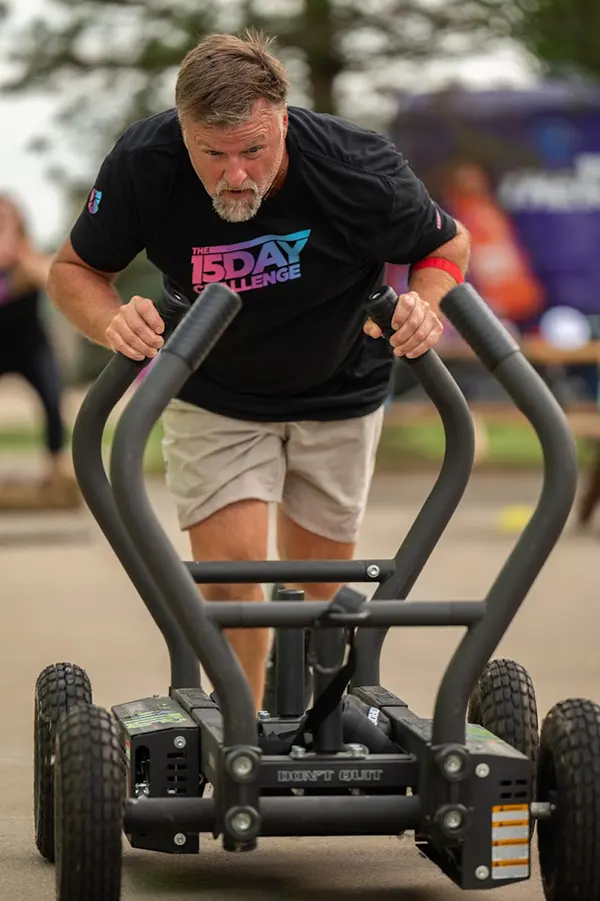
Some days it can be hard to carve out blocks of time in between meetings, errands, and social engagements, so if you simply cannot dedicate time to working toward your resolution, try purposefully working out in shorter durations.
According to researchers from Arizona State University, “Not only can shorter bouts of physical activity produce the same benefits as longer bouts, but that if the shorter bouts are ramped up from a moderate level (something akin to a brisk walk) to a vigorous level (where you’re almost out of breath but not quite), they may even produce more health benefits than longer, moderate-level bouts” (Working on Your Fitness: Less Might Just Be More When It Comes to Physical Activity, 2019).
Even for the busiest individuals, short-duration workout sessions can be much easier to schedule into a hectic day.
Reason #4: Our Old Habits Are Working Against Us
No, really, they are. Our habits can become wired into our brains, and it can be difficult (and uncomfortable) to alter or dislodge them (Bouton, 2014).
Habits can be developed through repetition. They serve as shortcuts that our brains take to automate repetitive tasks, like completing our morning routines or driving frequently traveled routes. Our brains do this to make our conscious minds available to work on things that require more focus (Breaking Bad Habits, 2017; Habit – PVS, n.d.).
Habits can also be developed or reinforced by triggering your brain’s “reward center.” This can help us stop smoking, practice better portion control, reduce drug or alcohol use, or quit gambling, to name a few common habits that your brain can fight against (Breaking Bad Habits, 2017; Habit – PVS, n.d.; Judah et al., 2018).
According to Dr. Russel Poldrack, a neurobiologist at the University of Texas at Austin, “The general machinery by which we build both kinds of habits are the same, whether it’s a habit for overeating or a habit for getting to work without really thinking about the details” (Breaking Bad Habits, 2017).
Dr. Nora Volkow, the director of NIH’s National Institute on Drug Abuse, says, “These routines can become hardwired in our brains.” In other words, parts of our brain work against us when we try to overcome bad habits (Breaking Bad Habits, 2017).
So regardless of whether your habits were established through repetition or reward, they can be very difficult to overcome. But there is another issue…
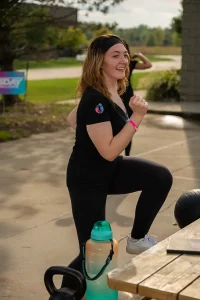 Our New Habits Don’t Replace Our Old Ones
Our New Habits Don’t Replace Our Old Ones
The expression “old habits die hard” exists because our old behaviors remain wired in our brains and can return, despite our desire to replace or eliminate them (Bouton, 2014). It takes conscious, deliberate effort and practice to strengthen your new behaviors and suppress the old, less desirable ones (Breaking Bad Habits, 2017). In fact, one study found that “strong intentions unexpectedly weakened the repetition-habit relationship” (Judah et al., 2018).
Here Are a Few Tips to Help You Deal With Old Habits:
Exercise Self-Control
Literally exercise it. According to Dr. Roy Baumeister, a psychologist at Florida State University, “Self-control is like a muscle. Once you’ve exerted some self-control, like a muscle, it gets tired.” However, Dr. Baumeister goes on to say, “Any regular act of self-control will gradually exercise your ‘muscle’ and make you stronger” (Breaking Bad Habits, 2017).
Like exercise, this takes deliberate effort, and it won’t always be comfortable. The good news, though, is that you can practice!
Visualize Yourself Making the Change
 Visualize your win. See yourself standing proudly after a workout session. Imagine yourself enjoying a salad instead of French fries or something deep-fried. Visualizing an action may actually help you do it (Breaking Bad Habits, 2017).
Visualize your win. See yourself standing proudly after a workout session. Imagine yourself enjoying a salad instead of French fries or something deep-fried. Visualizing an action may actually help you do it (Breaking Bad Habits, 2017).
But don’t just see yourself doing it; try to see yourself enjoying it. A study from the National Library of Medicine concludes, “Pleasure and intrinsic motivation can aid habit formation…” (Judah et al., 2018). Try to treat good habits like rewards!
Avoid Temptation (Literally)
Try to remove yourself from resolution-sabotaging substances. Steer clear of the sweets aisle at the grocery store. Substitute soft drinks for something healthier, like carbonated water. If you typically walk or drive a route that exposes you to the tempting scent of unhealthy foods, try changing it up. Make an effort to put only healthy food on your plate. Do your best to physically remove temptations from your life. If that isn’t possible, try to remove yourself from that temptation (Breaking Bad Habits, 2017).
Seek Support!

Friends and family can help keep you on track and cheer you on as you work hard to achieve the positive outcome you desire (Breaking Bad Habits, 2017).
You don’t have to do it alone.
In fact, you probably shouldn’t do it alone. Harvard Business Review published an article titled “You Can’t Achieve Your Goals Without the Right Support,” which is a pretty blunt way of saying that support is important (Su, 2016). The article outlines the types of support people typically need to succeed. Although that is beyond the scope of this blog, the point is that getting the type of encouragement you need when you need it can actually make a difference! If you know someone who has a similar goal as you, consider teaming up to cheer each other on and hold each other accountable.
Conclusion
We discussed four common reasons why health and wellness resolutions fail, and we offered some tips on how to help you achieve success in the new year. We believe that with the right goals, mindset, support network, and approach, more New Year’s resolutions can be realized.
Our Suggestion: Try The 15 Day Challenge!
The 15 Day Challenge is an easy-to-follow health and wellness program designed to help you develop and strengthen healthier habits. Everyone who participates receives free digital tools to help them stay on track, and the program is backed by a supportive and passionate community full of inspiration.
is an easy-to-follow health and wellness program designed to help you develop and strengthen healthier habits. Everyone who participates receives free digital tools to help them stay on track, and the program is backed by a supportive and passionate community full of inspiration.
It has also received rave reviews from participants! Don’t just take our word for it; check out some of the results people have experienced!
The 15 Day Challenge might just be the change you need in the new year. Best of all, The 15 Day Challenge is FREE to join, AND you can win up to $1,000 if your story is selected after you complete the challenge and submit your results. If you come in first, second, or third place, you will get a chance to win up to $25,000 later!
Although the base program is free, we also offer The 15 Day Challenge Kit to help you maximize your results. If you have an accountability partner you’d like to bring along, The 15 Day Challenge Kit for Two can save you some money!
You Can Do This, and We Are Rooting for You!
Yes, adopting new habits can be hard, but you can do hard things.
 Testimonials from The 15 Day Challenge have shown us that change is possible. Thanks to these inspirational people, we know it is possible to be among the 20 percent who realize their New Year’s resolutions.
Testimonials from The 15 Day Challenge have shown us that change is possible. Thanks to these inspirational people, we know it is possible to be among the 20 percent who realize their New Year’s resolutions.
Stay determined, set realistic goals, keep practicing healthy habits, and seek out support appropriate to your needs. And remember, “Weight loss is more likely to be sustained where people develop new habits that support weight management and break old habits that may undermine such efforts” (Gardner et al., 2021).
Additional Reading
Here are a few more blogs you may be interested in to help you start the new year off right:
- How to Create a Healthy Plate
- Water, Soda, Or Something Else? Your Guide to Healthy Hydration
- 7 Ways to Stay Active On A Daily Basis
Good luck, and Happy New Year!
By Gary Path, Sr. Creative Content Writer
References
- Bailey, R. R. (2019). Goal Setting and Action Planning for Health Behavior Change. American Journal of Lifestyle Medicine, 13(6), 615–618. https://doi.org/10.1177/1559827617729634
- Breaking Bad Habits. (2017, September 8). NIH News in Health. https://newsinhealth.nih.gov/2012/01/breaking-bad-habits
- Bouton, M. E. (2014). Why behavior change is difficult to sustain. Preventive Medicine, 68, 29–36. https://doi.org/10.1016/j.ypmed.2014.06.010
- Centers for Disease Control and Prevention. (2019). Losing Weight. Centers for Disease Control and Prevention. https://www.cdc.gov/healthyweight/losing_weight/index.html
- Gardner, B., Richards, R., Lally, P., Rebar, A., Thwaite, T., & Beeken, R. J. (2021). Breaking habits or breaking habitual behaviours? Old habits as a neglected factor in weight loss maintenance. Appetite, 162, 105183. https://doi.org/10.1016/j.appet.2021.105183
- Goleman, D. (2019, April 3). Why Small Wins Matter. Www.linkedin.com. https://www.linkedin.com/pulse/why-small-wins-matter-daniel-goleman/
- Habit – PVS. (n.d.). National Institute of Mental Health (NIMH). Retrieved December 20, 2022, from https://www.nimh.nih.gov/research/research-funded-by-nimh/rdoc/constructs/habit-pvs
- inc.com. (n.d.). https://www.inc.com/marla-tabaka/why-set-yourself-up-for-failure-ditch-new-years-resolution-do-this-instead.html
- Judah, G., Gardner, B., Kenward, M. G., DeStavola, B., & Aunger, R. (2018). Exploratory study of the impact of perceived reward on habit formation. BMC Psychology, 6(1). https://doi.org/10.1186/s40359-018-0270-z
- Mayo Clinic Staff. (2016). 6 proven strategies for weight-loss success. Mayo Clinic. https://www.mayoclinic.org/healthy-lifestyle/weight-loss/in-depth/weight-loss/art-20047752
- Su, A. J. (2016, January 15). You Can’t Achieve Your Goals Without the Right Support. Harvard Business Review. https://hbr.org/2016/01/you-cant-achieve-your-goals-without-the-right-support
- Tang, M. S. S., Moore, K., McGavigan, A., Clark, R. A., & Ganesan, A. N. (2020). Effectiveness of Wearable Trackers on Physical Activity in Healthy Adults: Systematic Review and Meta-Analysis of Randomized Controlled Trials. JMIR MHealth and UHealth, 8(7), e15576. https://doi.org/10.2196/15576
- Working on your fitness: Less might just be more when it comes to physical activity. (2019, January 3). ASU News. https://news.asu.edu/20190103-solutions-less-might-just-be-more-when-it-comes-physical-activity




